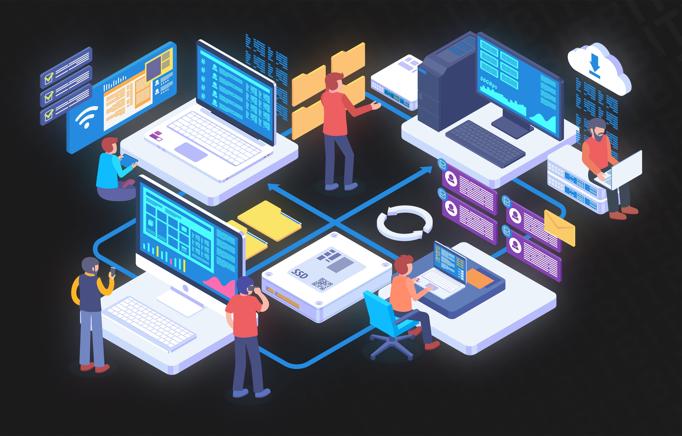What is peer-to-peer technology?
Crypto for Advanced
Other articles
The interchange or sharing of information, data, or assets between parties without the intervention of a central authority is referred to as peer-to-peer. Peer-to-peer (P2P) contact is characterized by decentralized interactions between people and groups. This method has been applied in the fields of computers and networking - peer-to-peer file sharing, as well as virtual currency trading.
Each user in a digital peer-to-peer network is theoretically an equal owner and contributor to the network. This type of network can be used to share nearly any type of data or files. The now-defunct music-sharing service Napster was one of the first mass users of P2P networks. P2P refers to the trade of cryptocurrencies, particularly Bitcoin, which was founded with the intention of enabling anonymous P2P transactions that do not require financial institution processing. This necessitated the use of encryption and the development of blockchain technology to allow two parties to perform a transaction securely without the involvement of a trusted third party. With transactions logged on every peer's network, it is highly difficult—even computationally impractical—to erase or fabricate ledgers in a cryptocurrency exchange, according to P2P supporters.
True peer-to-peer cryptocurrency transactions do not need the people involved to give identification, ensuring that everyone's anonymity is protected. Most peer-to-peer exchanges allow you to buy cryptocurrencies with cash or other forms of payment that offer privacy protection. Not all bitcoin exchanges, however, are peer-to-peer. Many are centralized exchanges governed by the laws of the nations where participants reside. As a result, governments may mandate exchanges to acquire information about users' identities and transactions, eroding the privacy that Bitcoin was designed to provide.
While privacy advocates may enjoy how peer-to-peer currency exchanges allow individuals to do business without government interference, virtual currencies' lack of transparency may allow individuals and groups engaged in illegal activities to launder money without notice or scrutiny.
Peer-to-peer technology is used also in the other things, many of us use daily, such as:
- Windows 10 updates are delivered from Microsoft’s servers and through P2P.
- Sharing large files – usually gaming platforms such as Steam and Epic Games use this.
- Torrent programs, and others.


